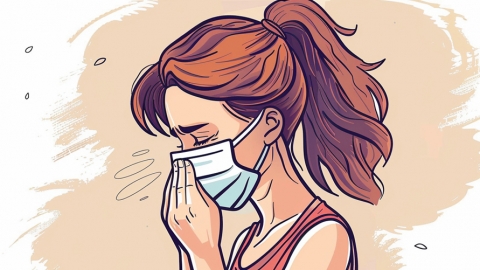Which cough medicine is more effective?
Generally speaking, there is no definitive answer to the question of "which cough medicine works better." Commonly used oral medications for treating cough include dextromethorphan and guaifenesin syrup, pentopril citrate tablets, ambroxol oral solution, acetylcysteine granules, and cefaclor capsules. Patients should choose appropriate medications based on the type and cause of their cough under medical guidance. The details are as follows:
1. Dextromethorphan and Guaifenesin Syrup
This is a compound formulation. Dextromethorphan suppresses the medullary cough center, thereby exerting an antitussive effect; guaifenesin helps dilute sputum and promotes its expulsion. It is suitable for dry cough or cough with small amounts of sputum caused by conditions such as colds and bronchitis.
2. Pentopril Citrate Tablets
These tablets work by suppressing the cough center and providing mild relaxation of bronchial smooth muscles, thus achieving a cough-suppressant effect. The antitussive action is relatively mild and is suitable for non-productive (dry) coughs caused by upper respiratory tract infections and acute bronchitis.

3. Ambroxol Oral Solution
Ambroxol increases secretion from serous glands in the respiratory tract while reducing mucus gland secretion, thereby lowering sputum viscosity. It also enhances ciliary movement in the bronchi, aiding in sputum clearance. It is indicated for coughs associated with thick, difficult-to-expectorate sputum due to acute or chronic bronchitis, bronchiectasis, and similar conditions.
4. Acetylcysteine Granules
As a mucolytic agent, acetylcysteine breaks down disulfide bonds in mucoproteins within sputum, reducing its viscosity and making it easier to expel. It is suitable for coughs with excessive thick sputum caused by chronic bronchitis and other diseases.
5. Cefaclor Capsules
This is an antibiotic that kills bacteria by inhibiting bacterial cell wall synthesis. It is only effective for coughs caused by bacterial infections, such as bacterial bronchitis and pneumonia, and has no effect on coughs caused by viral infections.
In daily life, it is important to drink plenty of warm water to keep the respiratory tract moist; avoid smoking and exposure to dust or irritating gases to reduce respiratory irritation; and take preventive measures during cold seasons to prevent respiratory infections that may lead to coughing.




